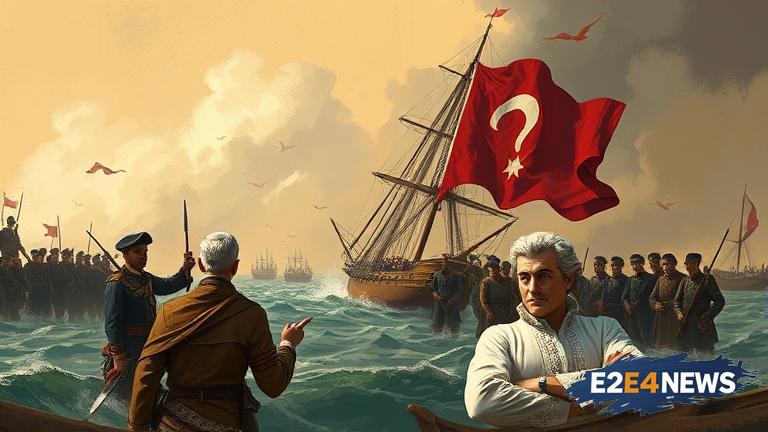The Barbary Wars, a series of conflicts that took place in the early 19th century, marked a significant turning point in American history. At the helm of this pivotal moment was Thomas Jefferson, the third President of the United States. Jefferson’s leadership and vision played a crucial role in shaping the nation’s foreign policy and its stance against piracy. The Barbary states, which included modern-day Morocco, Algeria, Tunisia, and Libya, had been a thorn in the side of European and American shipping for centuries. These pirate states would often attack and capture ships, holding crew members for ransom. The situation became increasingly dire, with the Barbary states demanding tribute from the United States in exchange for not attacking American ships. Jefferson, who had previously served as the American minister to France, was well aware of the situation and had long advocated for a strong stance against the pirates. Upon taking office, Jefferson refused to pay the tribute, instead opting to send a naval squadron to the Mediterranean to confront the pirates. The First Barbary War began in 1801, with the USS Enterprise, a schooner, engaging in a series of battles against the pirate ships. The war was marked by several key battles, including the USS Philadelphia, which was captured by the pirates and later burned by American forces to prevent its use against them. The turning point of the war came in 1804, when a small group of American Marines and Arab mercenaries launched a daring raid on the pirate stronghold of Derna, in modern-day Libya. The raid, which became known as the ‘Battle of Derna,’ was a decisive victory for the Americans and marked a significant shift in the balance of power in the region. The Barbary Wars ultimately came to an end in 1805, with the signing of a treaty between the United States and the Barbary states. The treaty, which was negotiated by William Eaton, the American consul to Tunisia, and General William Henry Harrison, brought an end to the pirate attacks and established a new era of relations between the United States and the region. The legacy of the Barbary Wars can still be seen today, with the conflict marking the beginning of American involvement in the Middle East and North Africa. The wars also had a significant impact on the development of the United States Navy, which was still in its infancy at the time. The bravery and cunning displayed by American forces during the conflict have become legendary, with the Battle of Derna being immortalized in the Marine Corps’ famous hymn. Despite its significance, the Barbary Wars remain a relatively forgotten chapter in American history. However, the conflict’s impact on the nation’s development and its ongoing relevance in modern times make it an essential topic of study. The Barbary Wars serve as a reminder of the importance of a strong and assertive foreign policy, as well as the need for continued vigilance against threats to national security. As the United States continues to navigate the complex and often treacherous waters of international relations, the lessons of the Barbary Wars remain as relevant today as they were over two centuries ago. The conflict also highlights the importance of leadership and vision in shaping the course of history. Jefferson’s unwavering commitment to his principles and his refusal to back down in the face of adversity serve as a powerful example of the impact one individual can have on the world. The Barbary Wars may be a forgotten chapter in American history, but its legacy continues to shape the nation’s interactions with the world. The conflict’s impact on the development of the United States Navy and the Marine Corps is still felt today, with both branches continuing to play a vital role in defending American interests abroad. The bravery and sacrifice of the men who fought in the Barbary Wars will never be forgotten, and their memory continues to inspire new generations of Americans. As the nation looks to the future, it is essential that it remembers the lessons of the past, including the pivotal role played by Thomas Jefferson and the American forces in the Barbary Wars.
